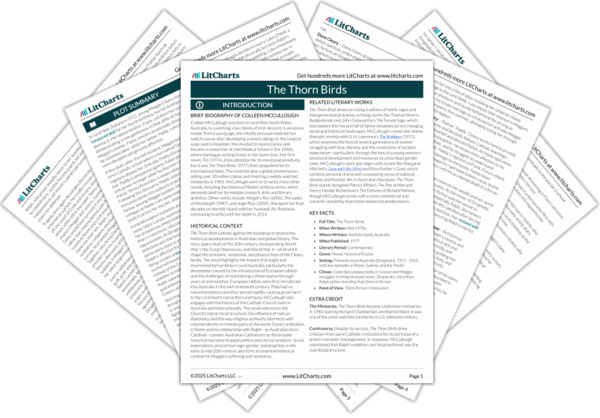Meggie’s insistence that her love will be pure, not destructive, suggests both optimism and her denial. By rejecting Anne’s warning, she assumes that her love can exist without consequences. She is convinced that her connection to Ralph, embodied in their child, will bring her lasting fulfillment. Her newfound strength and determination mark a dramatic shift from the passive suffering she endured in her marriage to Luke. Now, she takes control, reclaiming her sense of purpose and planning a future shaped by her choices. However, her belief that love can be perfectly pure ignores the complexity of human relationships and the potential for her devotion to become possessive or overbearing. Or, like Fiona, she could end up loving one child more than the other.
